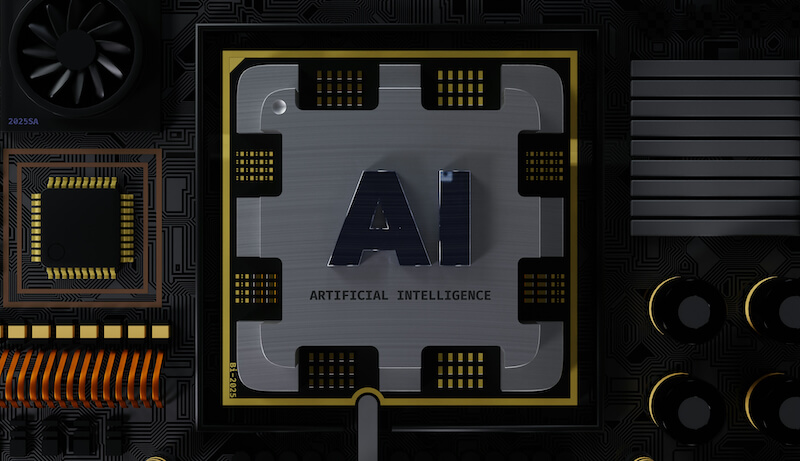
Researchers have developed a new AI chip that increases the energy efficiency of common systems sixfold. The chip uses novel material systems and mimics the processing methods of biological neural networks to dramatically reduce energy consumption.
Due to the increasingly widespread use of AI systems, we will soon be faced with a problem. Because intelligent algorithms require a large amount of energy to efficiently carry out calculations and output answers. Researchers around the world are therefore working on the next generation of computer chips to reduce energy consumption in the medium term.
Well developed a team a new AI chip that increases the energy efficiency of common systems sixfold. The chip uses a novel material system and mimics the processing methods of biological neural networks. This is intended to drastically reduce the energy consumption of AI technologies. The execution of computing operations as well as data storage and energy efficiency are said to have been significantly improved.
AI chip: Higher energy efficiency through more effective data transmission
The new chips use memristors, also known as memory resistors, which are made of so-called entropy-stabilized oxides (ESOs). This material system includes over half a dozen elements and offers finely tunable storage capacities.
Memristors are similar to biological neural networks in that they do not require an external storage source and do not waste energy transmitting data. This technology makes AI tasks more energy efficient than traditional central processors. Another advantage of ESO-based chips is the processing of time-dependent information.
These occur, for example, in dynamic content, such as audio and video data. This works because the system can adapt the composition of the ESOs to different time formats. This means it processes information in real time and can recognize connections.
AI requires increasing amounts of the world’s available energy
The AI chips could significantly influence the development of future systems with artificial intelligence. The use of memristors reduces energy consumption while increasing efficiency. That also seems necessary. Because according to forecasts AI could account for half a percent of global energy consumption in 2027. This is roughly comparable to the annual energy consumption of the Netherlands.
The advances could reduce the environmental impact of the increasing energy requirements of AI systems and increase their performance. Ultimately, intelligent algorithms are likely to continue to play a crucial role in the future and simplify many processes in our everyday lives.
Also interesting:
- AI as a judge: The advantages and disadvantages of artificial intelligence in the judiciary
- CT scans: Artificial intelligence could save thousands of lives
- Wyoming: Artificial intelligence should become mayor
- From water and salt: Researchers develop artificial synapse that works like the brain
The post New AI chip increases energy efficiency sixfold by Felix Baumann appeared first on BASIC thinking. Follow us too Facebook, Twitter and Instagram.